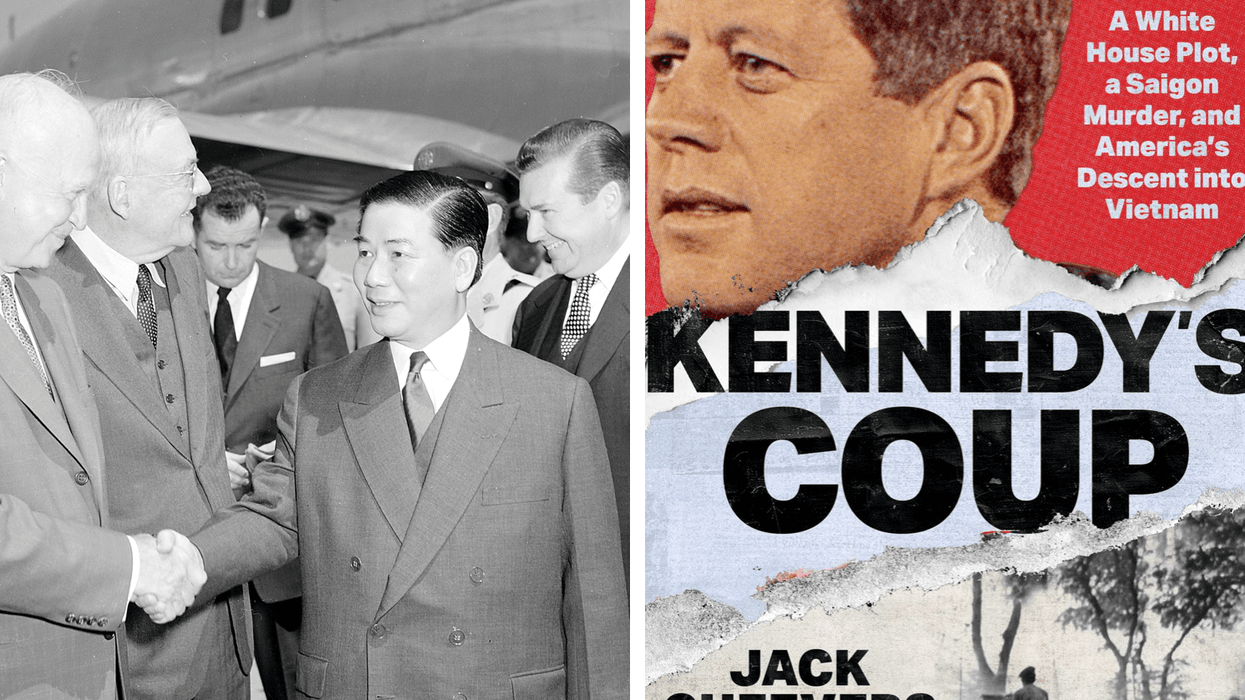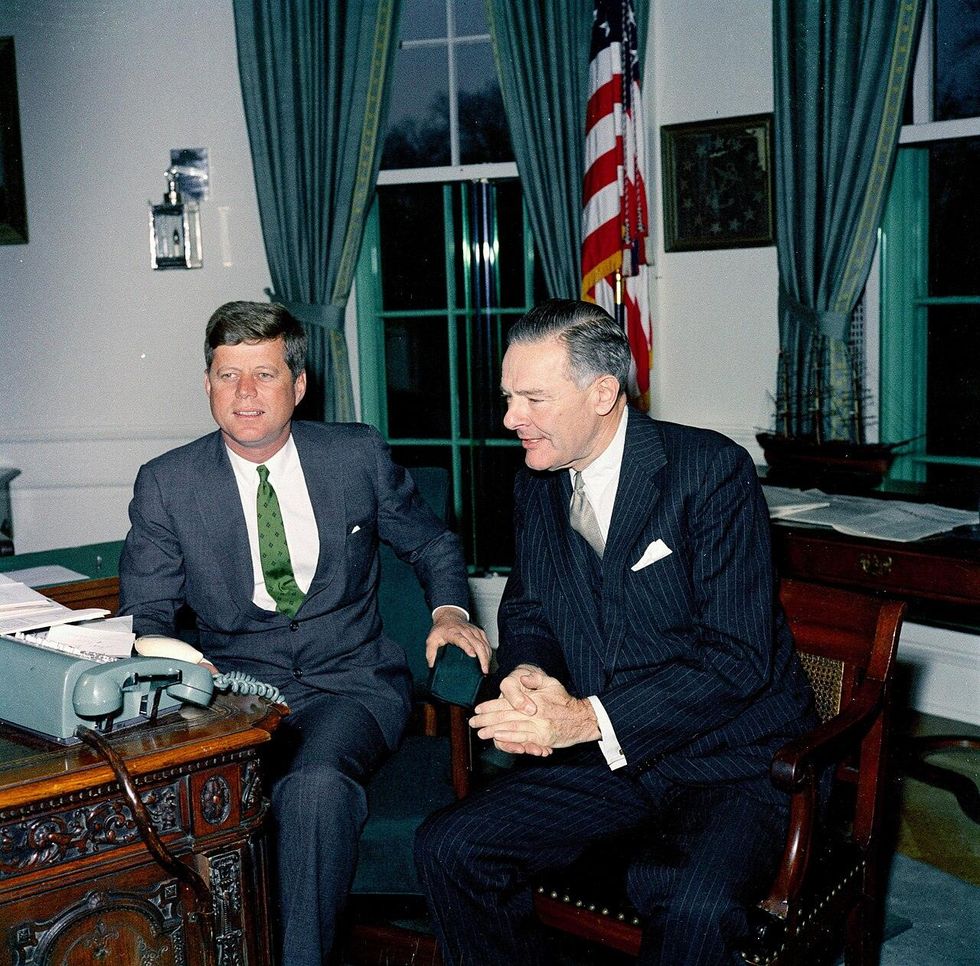Pakistani Prime Minister Imran Khan may have averted for now further violence by caving in to demands of a militant, supremacist religious group. But in doing so, Mr. Khan is allowing radical ultra-conservatism to fester, undermining social cohesion, threatening economic development, and giving militants a say in foreign policy.
The government’s surrender to Tehreek-e-Labbaik Pakistan or ‘I am Present Pakistan' (TLP), an outlawed far-right group, comes at a moment that Mr. Khan has taken several steps towards Islamicizing Pakistani society.
It also comes on the heels of ultra-conservatives in Pakistan feeling emboldened by the Taliban victory in Afghanistan. Further, the cave-in will do little to support Pakistan’s efforts to be removed from the grey list of the Financial Action Task Force (FATF), an international anti-money laundering and terrorism finance watchdog.
In separate talks, Mr. Khan’s government has been negotiating a ceasefire with Tehrik-e Taliban Pakistan (TTP), the Pakistani Taliban. The talks were mediated by Sirajuddin Haqqani, the Afghan Taliban interior minister, who heads the notorious Haqqani network. The network has been designated a terrorist organization by the United States while the FBI has declared Mr. Haqqani one of its most-wanted people.
The ceasefire would halt the TTP’s 14-year insurgency aimed at forcing the government to introduce Islamic law in Pakistani tribal areas. Thousands have been killed in TTP attacks and clashes with security forces.
For its part, the TLP has made blasphemy its signature issue. It has repeatedly leveraged its self-declared position as a defender of Islam and the Prophet Mohammed to pressure the government to meet its demands. The group uses mass protests that besiege Islamabad, the Pakistani capital, as its battering ram.
Four people were killed and some 250 injured last week in a clash with security forces during the latest confrontation between the government and the group. Thousands of TLP supporters had blocked a key highway as they marched from Lahore to Islamabad, a distance of 380 kilometres. They ended the blockade once the government reportedly agreed to their demands.
The group demanded the lifting of the ban imposed on it in April; release from prison of its activists and leader, Saad Rizvi; unfreezing of its bank accounts, and the expulsion of the French ambassador.
Details of the agreement with the TLP have yet to be released but Pakistani media reported that the only demand rejected by the government was that Pakistan should expel the French ambassador because of cartoons of the Prophet Mohammed published in 2015 by a Paris-based satiric magazine. Interior Minister Sheikh Rasheed Ahmad said the government would put the issue to parliament, but it has yet to do so.
Militants attacked the magazine at the time and killed 12 of its staff. The online Pakistan edition of Saudi Arabia’s Arab News last week appeared to try to calm Pakistani tempers by reporting that French companies wanted to invest in Pakistani tourism infrastructure despite the volatility in the country.
The TLP is a political expression of the Barelvi strand of Sunni Islam that has long been viewed as more moderate than Deobandism, the other major wing of the faith in Pakistan.
Recent Barelvi militancy speaks to the deep roots that ultra-conservatism has struck in Pakistan. Decades of varying government policies that contributed to Islamization coupled with past massive public and private Saudi funding for militant religious seminaries or madrassas and militant groups have helped weave ultra-conservatism into the fabric of Pakistani society.
Syed Badiuddin Soharwardy, a 66-year-old Canadian-Pakistani imam watched how Saudi-funded religious ultra-conservatism was instrumentalized by the Pakistani armed forces in its dispute with India over Kashmir and in Afghanistan starting with the anti-Soviet jihad in the 1980s. He also registered how ultra-conservatism changed the demography of the military.
The son of a prayer leader and teacher, Mr. Soharwardy recalls accompanying his father to mosques on bases across the country of the Pakistani army air force and navy to celebrate the Prophet’s birthday, a ritual frowned upon by ultra-conservatives. “My father would participate in the celebration and the kids would sing rhymes praising the Prophet,” Mr. Soharwardy said.
Mr. Sohawardy calculated based on analysis of the sectarian affiliation of Pakistan mosques that if 70 per cent of mosques were Barelvi in the late 1970s, that number had shifted more than 30 years later to 55 per cent identifying themselves as Deobandi. The shift in the affiliation of military mosques was even more dramatic with 85 per cent currently adhering to Deobandism as opposed to 90 per cent in the 1970s aligning themselves with the Barelvis.
Barelvis were not immune to the spreading tentacles of ultra-conservatism. Khatm-e-Nubawwat Lawyers Forum, a network of 800 lawyers with close ties to the police forces, drove a spike in blasphemy prosecutions that started around the time the TLP was founded in 2015. Blasphemy is punishable by death in Pakistan.
The forum is associated with The Assembly to Protect the End of Prophethood or Majlis-e-Tahaffuz-e-Khatm-e Nabuwwat founded in 1950 as a Barelvi organization. The organization focused on preventing Ahmadis from identifying as Muslims.
Mainstream Muslims accuse Ahmadis of blasphemy because they refuse to recognize Mohammed as the last prophet. The founder of the Ahmadis, Mirza Ghulam Ahmad, proclaimed himself in the late 19th century to be a Muslim prophet.
“Whoever does this (blasphemy), the punishment is only death. There is no alternative," said the forum’s head, Ghulam Mustafa Chaudhry.
Mr. Chaudry was the defence lawyer for Mumtaz Qadri who became a hero after he was convicted to death and executed in 2016 for the killing in 2011 of Salman Taseer, the governor of Punjab and an outspoken critic of Pakistan’s draconic blasphemy law.
Mr. Qadri’s grave in Bhara Kahu on the outskirts of Islamabad, a 25-minute drive from where he assassinated Mr. Taseer, has become a pilgrimage site that attracts scores of visitors. Graffiti celebrates Mr. Qadri on the road leading to his grave. Nearby shops sell flowers and pictures of the assassin.
Government critics charge the government’s deal with the TLP has undermined its authority and constitutes one more step towards affirming a greater role for religion in the country’s life.
Mr. Khan’s government has sought to Islamicise Pakistani education with the development of a new national curriculum and mandatory religion classes as part of university education. He has also recently established a body to monitor the curriculum, syllabi and social media for "blasphemous" content.
“The writ of the state has yet again crumbled in the face of violent extremism,” said columnist Zahid Hussain. The “agreement with the TLP has worsened the internal security situation arising from increasing faith-based extremism.”
Saad Hafiz, another columnist, argued that appeasement of militant religious groups like the TLP explains Pakistan’s welcoming of the return of the Taliban in Afghanistan. He warned that their influence was shaping Pakistani foreign policy and curtailing the South Asian nation’s ability to achieve its geopolitical goals.
Pakistan’s perceived embrace of the Taliban even if it has refrained from recognizing the group’s government has fuelled anti-Pakistani sentiment in Washington. US President Joe Biden has yet to call Mr. Khan since coming to office in January.
“The collective triumphalism in Pakistan on the US withdrawal from Afghanistan has not gone down well in Washington,” Mr. Hafiz said. “The street power of radical Islam has constrained international options. These factors have caused disarray and drifts in foreign policy that the country can ill afford. The net result is fewer allies, limited diplomatic space, and strategic mobility.”
This article has been republished with permission from James M. Dorsey.





 President John F. Kennedy and Henry Cabot Lodge Jr. in 1961. (Robert Knudsen/White House Photo)
President John F. Kennedy and Henry Cabot Lodge Jr. in 1961. (Robert Knudsen/White House Photo)










